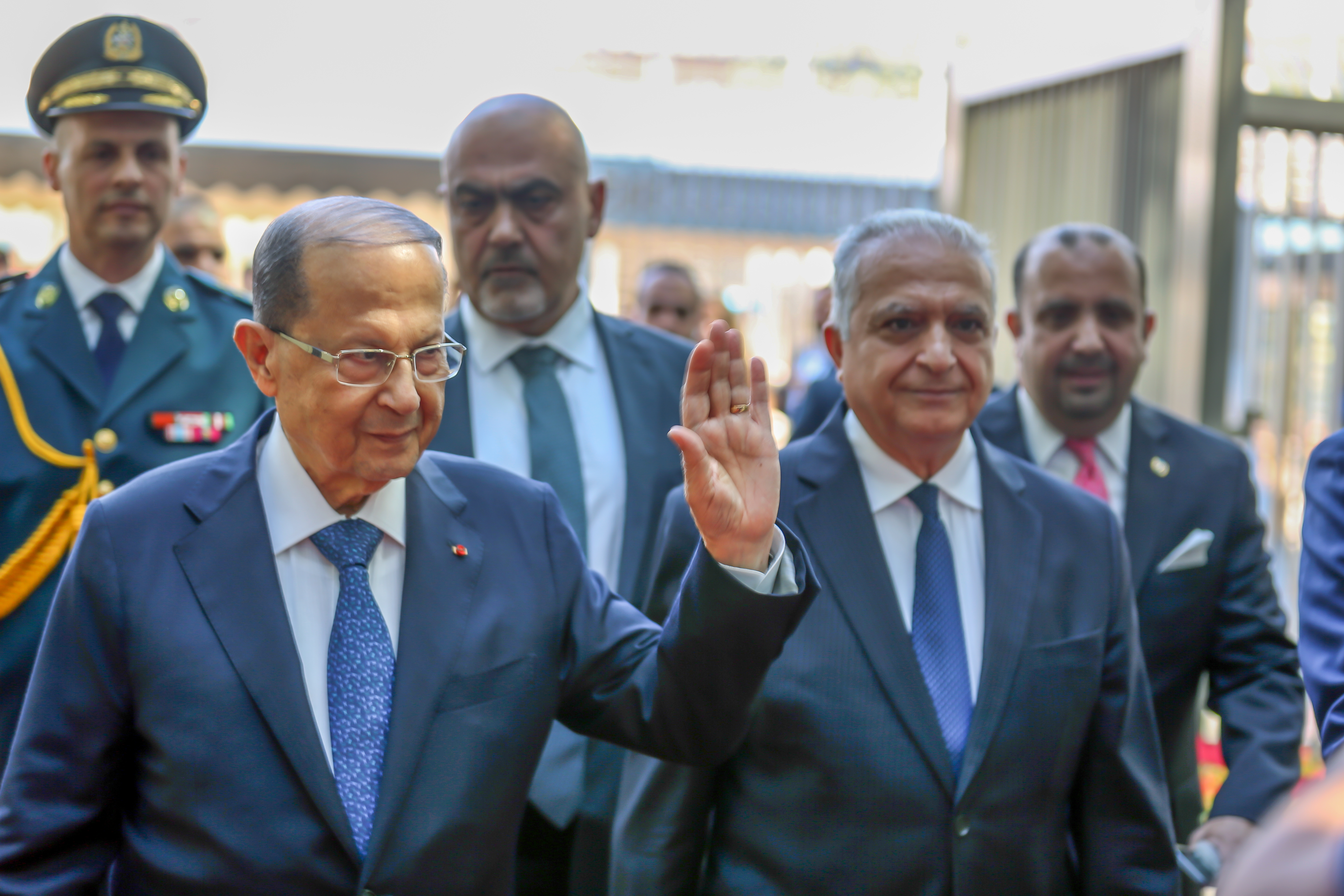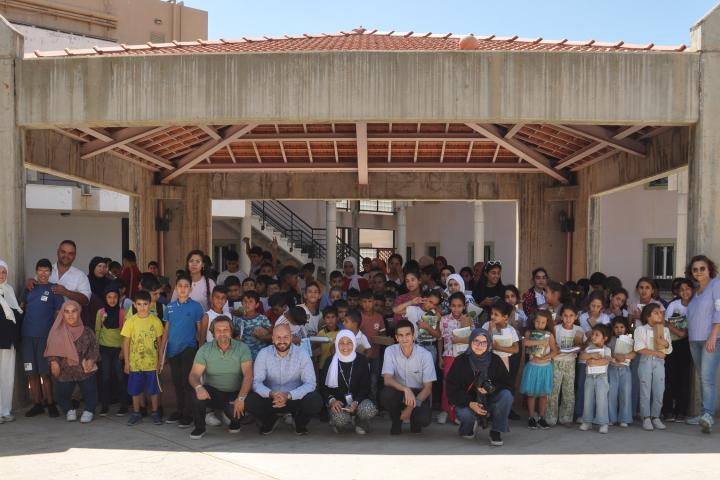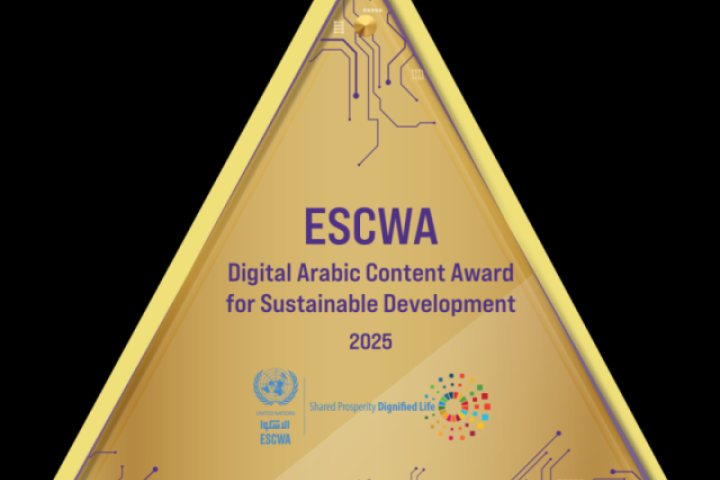Held every two years, the Ministerial Session is the main governing body of ESCWA which lends its focus to different themes depending on priorities and challenges currently facing Arab countries. In 2018, technology for sustainable development is the issue at stake, given the exponential “frontier” or “disruptive” technologies sweeping the world.
To welcome the high-level delegates to Beirut, where the Session is taking place again for the first time since 2012, an opening ceremony featured a performance by the Lebanese Internal Security Forces Orchestra and the Lebanese Scout Association. Following a colorful flag ceremony, dignitaries were invited to the stage to share their opening remarks.
The first to speak was the Secretary General of the Qatari Foreign Ministry, Ahmed bin Hassan Al Hammadi, whose country chaired the 29th Ministerial Session in 2016. He handed off the podium to the Tunisian Cabinet Minister in charge of major reforms, Tawfik Rajhi, as Tunisia is now chairing the 30th Session. The Secretary-General of the League of Arab States (LAS), Ahmed Aboul-Gheit and the Executive Secretary of ESCWA, Mohamed Ali Alhakim, then shared their remarks before hearing a statement by the President of the Lebanese Republic, General Michel Aoun.
“We gather today to discuss how to put technology and innovation at the service of human development in the Arab region, and to consider ways of integrating these two dimensions into national development plans of our member States to ensure the welfare and prosperity of Arab citizens,” said Mr. Alhakim, noting the potential of technology and innovation to achieve social justice, prevent division and marginalization, bridge the ongoing gender gap and ensure the full integration of persons with disabilities.
“We are aware of the solutions that technology can offer to many of the environmental, economic and social challenges facing our countries in addition to its ability to empower youth, women and girls, create decent work for all and support comprehensive sustainable development in our Arab region,” he continued.
In his opening address, Lebanese President Aoun stressed that the theme chosen for the Ministerial Session is vital and pressing because the role of technology in achieving sustainable development in the Arab region cannot disregarded.
“Technology in our era is not a luxury or an activity that is distinct from development and economic life,” he stated. “Rather, it is a major stakeholder in economic and social progress around the world, in rich as in poor or middle-income countries alike.”
Meanwhile, the head of LAS underscored the role of technology as a means to develop human capabilities and as an essential element to change societies through providing tools and means to set national frameworks.
Mr. Aboul-Gheit described the transfer of technology as an important process to “ensure a healthy working environment, to provide job opportunities for youth, and to promote and accelerate progress towards achieving the 2030 Agenda.”
He further noted the need to bear in mind that SDG 17 of the Sustainable Development Goals (SDGs) focuses on the promotion, development, transfer and diffusion of technology.
Echoing a similar message, Mr. Al Hammadi from Qatar called for additional focus on research and development which can enhance new materials technology, information and communications technology and biotechnology.
“We can promote capacity-building in science, technology and innovation with a view to achieving the SDGs in the knowledge-based economy, especially since capacity-building is the only way to generate new employment and reduce poverty rates,” he said.
With Tunisia chairing the 30th Ministerial Session and overseeing many of the work to be accomplished during the next two years, Mr. Rajhi focused much of his address on the opportunities that lie ahead for the Arab region.
“The current technology revolution or the so-called fourth industrial revolution, can provide solutions for the major challenges we are facing. It can open unprecedented developmental opportunities, create jobs, strengthen good governance and improve the productivity of national economies,” he stated, adding his belief in Arab States’ abilities to develop, transfer, adapt, control and manage promising technologies to increase productivity in various sectors.
Joining dozens of government representatives, many experts from civil society, the private sector, academia and youth took part in engaging debates during two round-table discussions and two side events.
The round-tables focused on ways of integrating technology and innovation into national development planning as well as on the role of technology in tackling challenges in the Arab region. Organized by the Arab Thought Foundation, the first side event featured the launch of the 10th report on cultural development with participants debating the realities and challenges of scientific research. In parallel, the second side event highlighted the importance of technological tools for enhancing the science-policy interface when dealing with climate change.
On Thursday, the last day of the Session, ESCWA will launch two studies on “Perspectives on the Digital Economy in the Arab Region” and “Fostering Open Government in the Arab Region.” A third round-table discussion on “Frontier technologies: opportunities, challenges and the way forward” will assemble all participants once more before a declaration is presented for adoption by member States. It is expected to form a roadmap by which Arab governments will continue pushing their agendas forward so that no one is left behind in the achievement of technology for sustainable development.
For more details on the Session, please visit: https://bit.ly/2kyS61a
*****
For more information:
Nabil Abu-Dargham, Head, ESCWA Communication and Information Unit
+961-70-993-144; email: dargham@un.org
Ms Rania Harb : +961-70-008-879; email: harb1@un.org
Ms Myrna Mahfouz: +961-70-827372; email: mahfouz@un.org
Mr Haidar Fahs: +961-70-079-021; email: haydar.fahs@un.org
Nabil Abu-Dargham, Head, ESCWA Communication and Information Unit
+961-70-993-144; email: dargham@un.org
Ms Rania Harb : +961-70-008-879; email: harb1@un.org
Ms Myrna Mahfouz: +961-70-827372; email: mahfouz@un.org
Mr Haidar Fahs: +961-70-079-021; email: haydar.fahs@un.org




